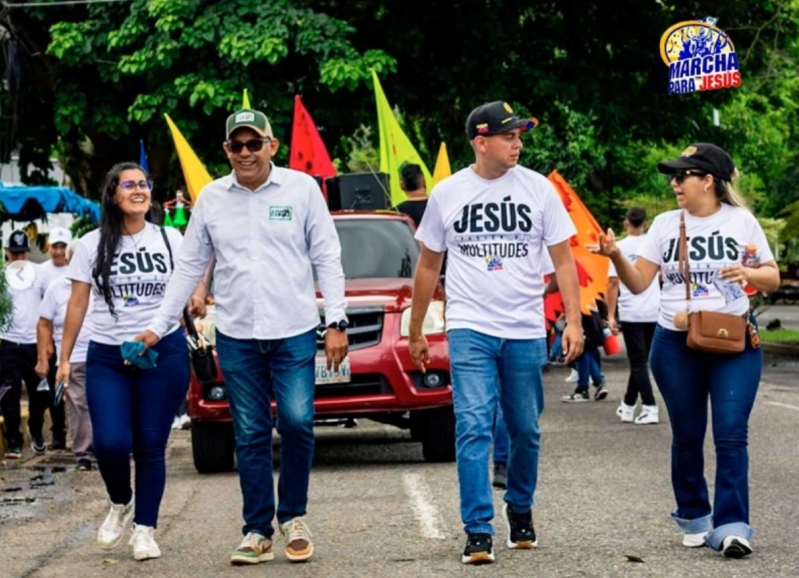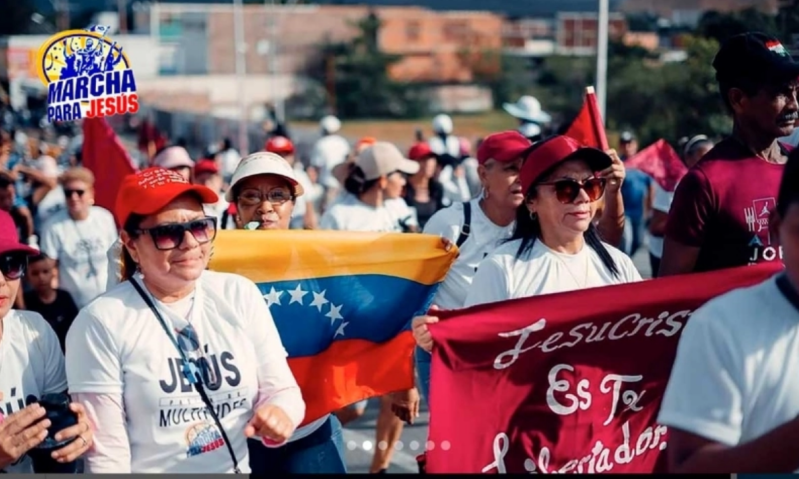
As part of the celebration of Pastor's Day in Venezuela, President Nicolás Maduro led an event at the Teresa Carreño Theater in Caracas, where he addressed pastors and evangelical leaders who support his government. During the event, he proposed formalizing religious activities such as the March for Jesus and chaplaincies in prisons, according to reporting by Diario Cristiano, Christian Daily International's Spanish edition.
These initiatives, along with state aid, have been interpreted as a strategy to gain political support amid declining electoral backing, as reflected in the results of the disputed presidential election on July 28, 2024.
In 2023, the government launched the Social Church program to support vulnerable communities through community kitchens, donations, and social assistance via the "Patria System." However, these programs have divided the Christian community, with some viewing them as tools for political control and indoctrination.
On Jan. 30, Maduro signed an agreement authorizing evangelical churches to enter prisons and preach the message of Jesus Christ. During his speech, he claimed that Venezuela is admired worldwide for its resilience, likening his government's struggle to David's victory over Goliath and asserting that the country continues to prevail thanks to the "divine force of God."
March for Jesus declared intangible and spiritual heritage
In the presence of several evangelical leaders, Maduro decreed the March for Jesus as Intangible and Spiritual Heritage of Venezuela, establishing that it will be held annually on the first Saturday of August. Pastor Hugo Díaz, president of the March for Jesus in Venezuela, praised the decision.

However, the move sparked controversy both domestically and internationally. Aristóteles López, founder of the March for Jesus in Venezuela and currently in exile, criticized the officialization of the event and accused Díaz of "allowing the government to use the march's structure for political purposes." López also alleged that the date change—from October to August—was orchestrated by the government, claiming he had evidence that the decision had been prearranged between Díaz and the Venezuelan authorities.
In response, Díaz published a video stating that the date change was not imposed by Maduro but was agreed upon on Dec. 6 with leaders from other countries. According to Díaz, the goal is to ensure that by 2030, when the 2000th anniversary of Christ’s Resurrection is celebrated, the march will take place simultaneously worldwide.
Despite this explanation, several Christian leaders in Latin America have voiced concerns about the Venezuelan government's role in organizing the event. Unofficially, representatives from Colombia, Argentina, and Brazil have expressed worries over the march's politicization and potential distortion.
Controversy about spirituality in Venezuela
The date change also carries spiritual significance. In Venezuela, Oct. 12, when the March for Jesus was traditionally held, is associated with spiritualist and witchcraft rituals, particularly the Baile en Candela in honor of Queen María Lionza. López and other Christian leaders argue that moving the march to August symbolically concedes that day to the government, allowing esoteric practices to remain part of the country’s spiritual identity.
The officialization of the March for Jesus and its incorporation into the national calendar highlight the complex relationship between politics and religion in Venezuela. While some Christian leaders see the measure as a recognition of their faith, others view it as a state control strategy. The controversy remains unresolved, and the debate over the Church's independence from political power continues to divide Venezuela’s evangelical community.
Originally published by Diario Cristiano, Christian Daily International's Spanish edition.





